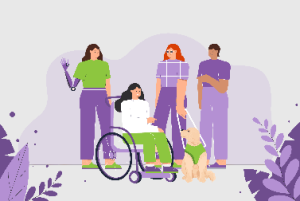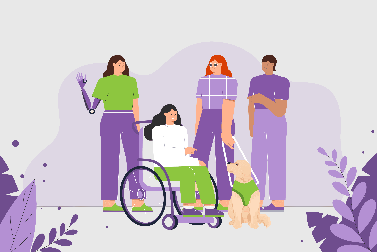Assistance for those with disabilities involves practical assistance to complete your day-to-day activities, including housework or bathing, as as more complex needs like physical therapy. There’s no universal, one-size-fits all solution to care for people with disabilities. Each person with disabilities has their own requirements. In reality, virtually every program that is designed for care of disabled people can be tailored to meet the particular needs of an individual using the right resources and programs. These are some ways to guide you to the best program.
Research your particular needs or ask someone who has previously found a home-care program that suits their needs. Find out what you do everyday, your habits as well as your hobbies and what you find difficult about your daily life. If you’re dealing with a physical disability do you melbourne disability services to accomplish daily tasks such as the climb up a staircase, for instance? What kinds of things do you love doing and what are they and why? If you are able to find a disabled caregiver who can do great job in finding a suitable program that meets your individual needs, you’ll enjoy more flexibility and be able to be involved in more activities than you otherwise might.

Look for a service that gives help and instruments to perform the daily chores. Certain disability organizations offer assistance, such as helping you get to the bathroom or change your tires. Others aren’t. Be sure that you have a program that will help you accomplish the two goals. You may be offered personal phone calls or an appointment to talk to you in person on a specific date every week, by some disabled care organizations. Other providers provide continuous, 24/7 help.
Are the homes in the residential area able to assist people with disabilities? Can it assist people who are recovering to adapt to their new lifestyle? This is one of the most important concerns. These are the most important questions. It can be a frustrating experience if your provider does not offer help during the transition.
You must ensure that the provider of disability care you pick is experienced and trained to coordinate all the requirements you’ll need. There’s absolutely no reason you have to be kept out of these essential processes. Do not just presume that your knowledge is accurate. getting yourself into. Instead, be sure to ask plenty of questions, and make sure that you and your provider are on the similar page right from the beginning. With so many different types of disabilities and various demands, it’s crucial to make the best choices when it comes to residential aged care homes.
The handicapped live in a society in which they’re often treated as second-class citizens. Laws that exist to protect against discrimination against them can be confusing and contradictory. The majority of them aren’t treated with the same respect in the same way as healthcare professionals. The residential aged care providers employed by the caregivers at home will be taught an extensive amount about how to provide for their elderly clients. However, they also will be aware of regulations that impact those receiving services in a residential facility.
Rural areas may not offer numerous options for care providers. In order to provide quality care one must have a wide range of choices that you can choose from. There are several things that can be done at your home, like highly skilled maintenance workers. Alternative options, for instance, trained maintenance personnel, may also be in the pipeline. Others, like occupational therapists, could also be a possibility. These are all important but other aspects like emergency help, transportation and security measures could also have value based upon the place.
A special type of elderly care might be needed for your loved one who is getting medical care at one of the hospitals. If you are working with someone who is a special need person, it’s essential to understand how to be a caring caregiver. While you have the potential to offer physical or emotional assistance, you must have the right training to aid disabled people.

